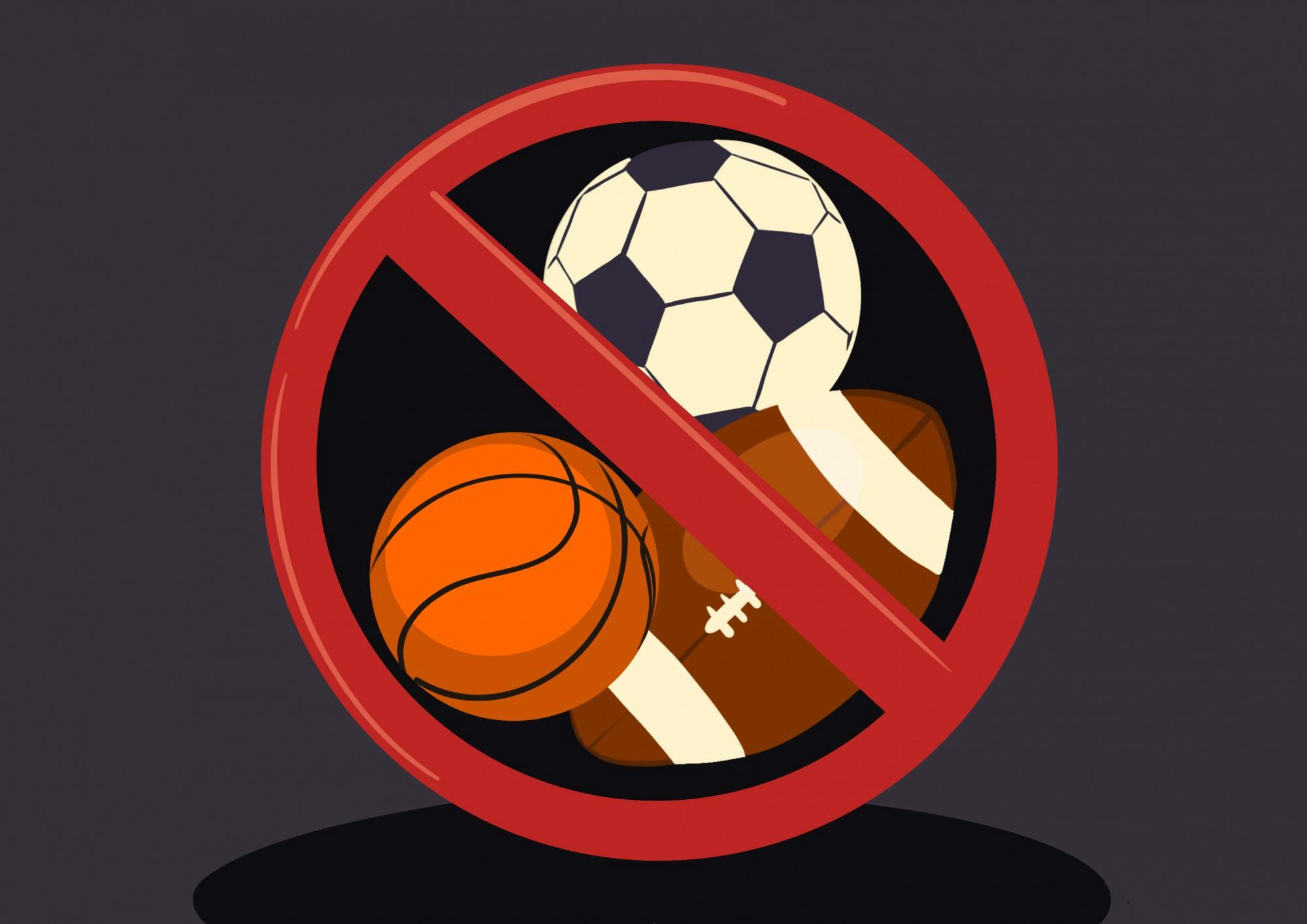In sports, there seems to be one mantra that reigns supreme: Don’t quit. For many athletes, to quit is to fail. This attitude is deeply ingrained into the mind of every athlete from a young age. However, there are both positive and negative effects from this supposedly all-encompassing edict. While Dartmouth athletes excel in the realm of scoring rugby tries, poke-checking incoming wingers on the ice rink or making the stop on the one-yard line, juggling a varsity sport on top of Ivy League academics can be a difficult and sometimes impossible task.
Marquist Allen ’24, former defensive end for the football team, said he dropped from his sport because he wanted new experiences on campus. On top of that, he sustained a significant injury which pushed him away from the sport.
“I ended up figuring out other things I love to do with my time, and [the athlete] lifestyle just started to kind of fade out of the picture of my life,” Allen said. “I had the injury side of the decision, and then also I really got into entrepreneurship.”
In addition to finding new endeavors, Allen said that leaving the team allowed him to work at a venture capital firm part-time while taking classes. He said he enjoyed being able to transfer his efforts on the football field to other aspects of his life.
Dylan Witzke ’25 said that quitting the varsity men’s hockey team felt like the only option. Witzke played defense under coach Reid Cashman during the 2021-2022 season and said he soon fell out of love with the game he had grown up with.
“I think it was just a combination of school being stressful, being a younger guy on the team and trying to balance all of my work,” Witzke said.
Witzke said he felt as though he didn’t get the support from the coaches that he needed, and as a result, his mental health suffered. He noted that knows of a lot of student-athletes who feel similarly about their mental health and wish they could prioritize it more.
“I think the main issue was just that guys get to college, and they realize there’s more to do than just play sports,” he said. “The coaches make it so that you have to learn to really love it. If you’re not fully invested, it’s not going to be for you.”
Hannah Sheehy ’24, a former member of the women’s rugby team, similarly noted that many athletes struggle with juggling sports and academics.
“With support for student-athlete mental health, while I think the intention was there, maybe the execution wasn’t as much,” Sheehy said.
Sheehy said she believes many athletes feel a lot of pressure to keep playing. Although Sheehy wasn’t recruited, she said many of her former teammates were, which added to the stress of performing successfully both academically and athletically.
However, dropping a sport doesn’t mean that athletes have to leave it all behind. Allen stated that he has been able to stay connected to the team despite his absence on the field.
“I don’t have the ability to go to practice and see everyone as normally as I once did, but I think [I’m still] really close with the football team,” Allen said. “I chose Dartmouth over other schools because it was a big family environment, and that definitely stood true for me.”
Like Allen, Witzke said leaving his team allowed him to learn more about himself and find what he was truly interested in outside of hockey, as well as focus on his academic goals.
“I was like, ‘I’ll do PPE just because all the other guys on the team do it,’” Witzke said. “But since quitting, I was able to find where I’m actually interested in. I found that I really enjoyed economics.”
After leaving the team, Witzke recounted how he rediscovered his love for hockey by joining Dartmouth’s club hockey team. He led the team to a conference championship this year in the ACHA (American Collegiate Hockey Association), scoring 58 points in just 20 games.
“The [level of] hockey is perfect. It’s still competitive. I mean, it’s not the D1 team, it’s club sports, but the guys still take it seriously,” Witzke said. “It’s huge for social life and for mental health.”
Witzke’s desire for a less taxing athletic experience is not unique. For Sheehy, who grew up in Ireland, the culture surrounding rugby was far different than what she encountered in America.
“I’d still [be playing] if there was some club or more recreational option.” Sheehy said.
Sheehy admitted that she missed the laid-back, relaxed attitude of her childhood rugby teams. According to Sheehy, “the Dartmouth team in comparison feels very professional.”
Having left the team, Sheehy said she has had time to take a leadership role in her sorority, Kappa Kappa Gamma. According to Sheehy, her commitment to the rugby team and her role as Vice President of Internal Affairs in Kappa would have been impossible to manage at the same time.
For Allen, leaving the football team was a pathway forward, while for Witzke, departure from the hockey team allowed for his self-discovery and much needed relief from being spread too thin. Sheehy’s choice to drop rugby reflected a step towards personal well-being.
Through their decisions to leave their respective athletic teams, these three athletes learned that quitting is not equivalent to failing — quitting can be a way to move forward. There is no shame in opening new doors, no matter how many times you have been told otherwise.




